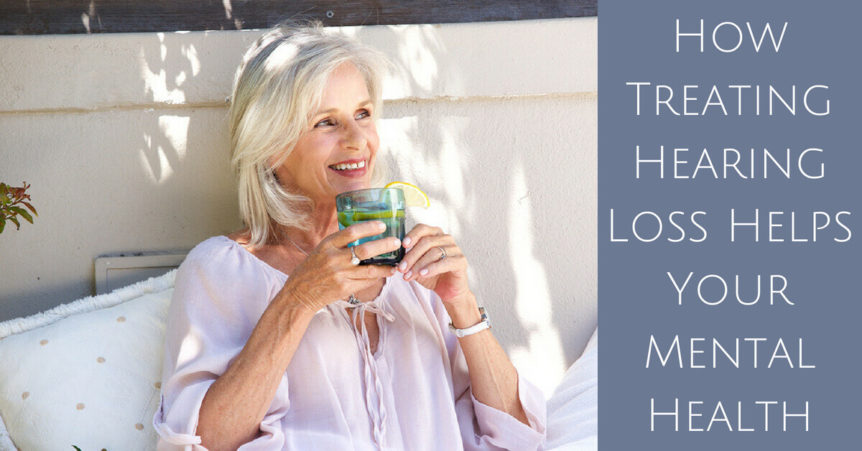If you suffer from hearing loss, you risk far more than missing out on a few words here and there, struggling to follow conversations, or feeling embarrassed by answering inappropriately. Hearing loss is closely linked to your mental and emotional health, and those with hearing loss are far more likely to suffer from depression than their hearing peers. Treating hearing loss isn’t just about hearing clearly, it’s a way to protect your mental health.
Hearing Loss and Mental Health
You might think that you’re not at risk for developing depression, but a 2014 study showed that those most at risk of developing mental health concerns along with their untreated hearing loss were adults between 18 and 69. Hearing loss can affect anyone, regardless of age or gender, and can lead to mental health concerns such as emotional distress, anxiety, social isolation, and depression. An Italian study looking at data collected from adults between the ages of 35 and 55 found the same results. Those who had untreated hearing loss, even if it was mild, were far more likely to report anxiety or interpersonal problems and were at a greater risk of mental health problems.
Hearing loss can be an isolating experience, robbing you of your ability to connect with friends and loved ones, or maintain a healthy social life. You might choose to stay home rather than going out to a noisy restaurant to meet friends and spend far more time alone than your friends who don’t struggle to hear. Your hearing loss can also create a lot of job performance anxiety as you’re unable to communicate affectively with your boss or your coworkers. And favorite pastimes like watching TV or listening to music become stressful as your strain to hear.
These factors often lead to poor mental health outcomes, as you feel more and more alone, get easily frustrated or upset, become irritable and anxious, and struggle with the daily tasks of life.
Treating Hearing Loss
If you’re ready to do the right thing for your mental health, then it’s time to talk about hearing aids. People who treat their hearing loss with hearing aids report regaining emotional stability in their lives, having more social interactions, a stronger community of friends, improved relationships through great communication, and fewer depressive symptoms. Hearing clearly can increase self-confidence and allows you to feel in control of your life. You’ll also have far greater quality of life and find enjoyment in all areas of life. Research is clear that consistently wearing hearing aids to treat hearing loss reduces depressive symptoms and improves mental health.
What to Expect from Hearing Aids
If you’ve never had hearing aids, you might not know what to expect. Are you imagining clunky hearing aids that will feel strange, or make you look old? Today’s hearing aids are like sophisticated mini computers, designed to give you back the ability to communicate. Featuring sleek, ergonomic designs that fit snugly behind your ear or even sit inside your ear, you’ll be able to hear clearly without drawing any attention to your ears.
Modern hearing devices are designed with you in mind, and have a lot of amazing features, like rechargeable batteries, wireless connectivity to your phone, TV, or other Bluetooth enabled technology, and remote-control options through smartphone apps. You’ll never have to fiddle with your device, and you’ll have complete control. Come check out our hearing aids that will help you maintain the lifestyle that you want, enjoy all the sounds around your, and safeguard your mental health.
Custom Hearing Solutions
Are you worried about your mental health? Have you been struggling with feelings of social isolation or depression? Now that you know that these feelings are linked to your hearing loss, call us today at Custom Hearing Solutions to book a hearing assessment and find the perfect hearing devices.
Whether you have trouble hearing in quiet or in noise, or just need a bit of help to focus on speech sounds and reduce distracting background noises, we have the hearing aid that will suit your hearing needs and lifestyle. Being able to follow conversations easily, and engage fully with your loved ones and the world around you will do wonders for your mental health and overall quality of life.

